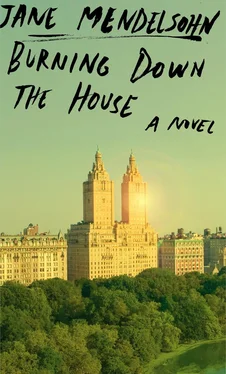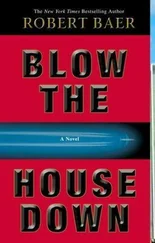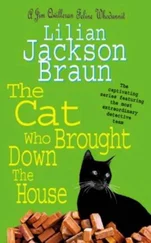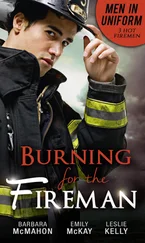Suleyman examined the pages and looked at Jonathan. He looked again at the plans. The families strolled along past flowering bushes and silvery fountains.
You want to build this? he said.
Yes, it’s a spectacular mall. Very elegant. Jonathan pointed to the walnut trees.
You can’t build this.
Jonathan looked at him. I can’t do it?
No, I’m afraid not.
Jonathan patted his lips with a napkin and looked around the restaurant. Huh, he said. I thought if anything could get built around here it would be a gorgeous property like this.
You’re crazy. Why would you want to build this?
What do you mean?
Suleyman spread his hands out across the plans. I just mean that this is so involved, so grand, it will take years to build. Why would you want to make something so complicated?
I can’t believe you’re asking that. It’s modeled on Topkapı Palace, your city’s great historical site. It’s a magnificent design. You think I’m crazy?
No, I didn’t mean it literally. But you could make something simpler.
Are you going to get me the permits to build this or not?
I can’t. It has to be modified.
Jonathan looked this way and that.
We have the contracts. What would it take to get the permits and the crew?
I’m not doing it. It’s an endless project that will never happen. I have some responsibility to my city. We have to build things that can actually get made. This would cost many, many millions.
I have many, many millions.
I’m sure you do but we don’t need unfinished projects all over the place. Half-built buildings. Skeletons of skyscrapers haunting this city.
Suleyman pointed out the window to one teetering structure, all scaffolding, an orange crane moping idly beside it. There were others like it all over Istanbul.
I’m sorry you feel that way, said Jonathan. I need to use the restroom. I’ll be back in a minute.
When Jonathan returned another man had arrived, and this was a minister in the current regime. He wore thick glasses. Jonathan sat down and began folding the plans and sliding them back into their envelope. The minister leaned forward and looked closely at Jonathan’s face.
Suleyman tells me you have an unrealistic plan.
Depends on what your idea of reality is.
Our idea of reality is the real one, the minister said.
Jonathan continued to put his plans away. You call this meeting real? I was told I could get permits.
I never promised him a permit, Suleyman said. I told him the plans were subject to consideration.
What do you have to say? said the minister. Will you modify the plans?
Why do you care if it takes a long time to build? We are willing to put hundreds of millions into it.
If it doesn’t get built we get blamed. The government is cracking down. People are resigning, being fired, going to jail.
So what do you want me to do? Make something cheap and ugly?
The minister laughed. Suleyman laughed.
Of course not, said the minister. We just want you to alter the plans a bit.
You won’t give me the permits unless I build something blockish and unattractive? Something inexpensive and expedient?
We didn’t say that.
I think you did.
Don’t put words in our mouth.
Jonathan looked from one man to the other. I didn’t put them there.
Jonathan left the plans half in and half out of the envelope. He reached down with his right hand to his gleaming black leather briefcase and took out a smaller envelope, a very thick one. He placed it in the center of the table. Then he reached into his bag again and took out two boxes wrapped in paper and tied with tags that said PATEK PHILIPPE on them.
Let me see the plans, said the minister.
Jonathan spread them out again on the table. The three men gazed at the exquisite mall.
I suppose we could eliminate this, Jonathan said, taking a pen and striking a line through the hammered steel. And this, he said, rubbing out the mosaic archway. And in the interests of speed and therefore the well-being of the community we could remove these, he said, drawing an X over the walnut trees. We could do the whole thing in something solid and lasting, like concrete.
The minister adjusted his glasses. Suleyman looked at him.
I like it, said the minister. Very simple. Modern.
Excellent. I believe that we have worked out a compromise, said Jonathan. And to make it all go quickly we’ll make sure you get the cranes you need, decent equipment, not this crap you’ve been using. We can figure something out, swap some of the stuff we’ve been using in New York. Of course the really good machinery is in Dubai now, but we’ll figure something out. Gentleman, I respect your concern for your city, its people, and its architecture. It is a pleasure doing business with you.
As the waiter came to serve their entrées, Suleyman picked up the thick envelope and made it disappear. Then he did the same thing with the two boxes.
I am blown away by how delicious this birdshit is, said Jonathan. This is the best birdshit I’ve ever tasted.
—
Back at the hotel Jonathan sat on his square balustraded terrace and called his father. He got Steve’s voice mail and left a message. Totally worked, he said. They fell for it completely. We got the permits and we saved a lot, and I mean a lot, of money. Then he let a long pause go as if he were hoping that his father would pick up the phone. Proud of me, Pop? he said into the air. His words floated over the terrace and rocked on the breeze that sashayed across the river. Into the night of salty, perfumed, and polluted air. Out to sea.
—
Angel’s first day as a crane operator was quite possibly the most exciting day of his life. Maybe not as thrilling as the days each of his kids were born, but those long hours had been filled with anxiety, and today he felt no such fear. Aloft, swinging high above Second Avenue in his primary-colored flying car, he could see every borough. There was no wind and far above the streets there were moments of silence when he believed he was an astronaut and moments when the terrain flattened out around him and he felt like a symbol on a map. Either way, he experienced a new dimension, a new relationship with the landscape and to the world. He could hear his thoughts. He could see farther than he had ever seen, a distance calibrated in miles, counties, a quilted planet that seemed more hospitable than he had ever imagined. He thought he could see a baby smiling on Roosevelt Island. And an old woman dying, comfortable, accepting, taking her time, in Crown Heights. And a family eating dinner in Yonkers. And a man, anywhere, everywhere, beginning his life.
POPPY STOPPED seeing her psychiatrist sometime in March. Their last session had been yet another rehashing of her relationship with Ian, trying to understand it, trying to sort through the memories which besieged her at uncertain hours, bits of glass in a sweet dessert, if by “sweet” one meant “escapist.” The doctor had provided several interpretations of Poppy’s actions and for her ensuing behavior, especially for the promiscuity and the drug use, and the various forms of denial, only some of which the doctor even knew about. But the sessions had become repetitive, wore Poppy down, until leaving the office and opening the door onto Park Avenue she would be slammed with a sugar low so deep she thought she might collapse on the sidewalk. She stopped going.
—
The chef, Kiki, having been given instructions that the whole family would be eating together at seven, finished putting the last touches on the oval dining table. Dinner was family style tonight, not plated or passed, a casual evening and a rare occasion on which both Steve and Patrizia would dine with the kids, and Steve’s older children would be present as well. The well-nourished clan, seeing the delectable offerings, approached the spread, each in his or her specific manner. Roman ravenous, Felix with a book, Patrizia unhurriedly, Poppy distracted. Jonathan and Miranda were joining tonight, he arriving at his place in a style both entitled and uncomfortable, she sliding into her seat self-consciously. Alix had come too. Steve sat down last, as if a conference were being called to order, figures to be reported, depositions to be read. He closed his eyes momentarily, in a reflexive, unconscious action that could have been interpreted as a private microprayer but which was in fact a response to anticipatory chest pain. He caught a glimpse of Poppy out of the corner of his eye and smiled at her, with just the tiniest curl of his mouth, and she didn’t see it, didn’t see in that moment his specific love for her. These days she sensed it but felt she had no proof and therefore dismissed the idea that she meant something distinctive, something special, to him. Was it because of his grandeur, his overpowering shadow cast over every interaction? Or was it because what she wanted was too much? She knew he did love her, in his way. He had taken her in, loved her as his own. But now his love for her did not seem to extend outward toward her in the warm embrace she needed. It was as though his love was a feeling that never quite left the depths of him.
Читать дальше












